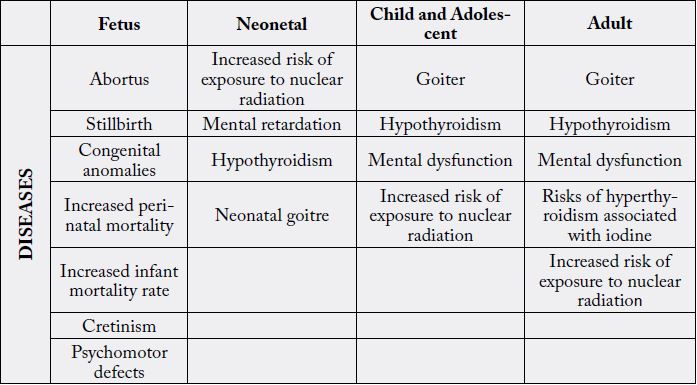Biography
Interests
Emre KÖLE* & Merve KÖLE
Bilecik State Hospital Department of Obstetrics, Gynecology Bilecik, Turkey
*Correspondence to: Dr. Emre KÖLE, Bilecik State Hospital Department of Obstetrics, Gynecology Bilecik, Turkey.
Copyright © 2018 Dr. Emre KÖLE, et al. This is an open access article distributed under the Creative Commons Attribution License, which permits unrestricted use, distribution, and reproduction in any medium, provided the original work is properly cited.
Abstract
Iodine is one of the essential elements required during pregnancy and lactation. Fetal severe mortality and morbidity can be seen in iodine deficiency. Iodine deficiency is a global health problem. Daily iodine intake should be 250 μg / day, especially in pregnant or lactating women.
Introduction
Iodine is one of the essential elements that must be taken absolutely in individuals. Approximately 90% of
the dietary iodine is absent from the stomach and duodenum. The half-life of the iodine is up to 10 hours
depending on the iodine deficiency. The iodine released into the plasma is used repeatedly by the thyroid
gland. The unused portion is excreted in the urine. Daily iodine intake in women who are pregnant or
lactating should be 250μg/day. Fetal severe morbidities can be encountered in pregnancies that do not
receive adequate iodine support [1-6].
Discussion
Iodine deficiency is a global health problem known to affect about 2 billion people around the world. The most important source of iodine is the oceans and seas. Sea plants and marine animals form the richest iodine source since they can concentrate iodine from water. Iodine evaporates in sea water and then returns to the ground with rain. This leads to low amounts of iodine in crops and crops that grow on the ground with cycling. Iodine deficiency is more common in mountainous areas, and this shortage can be observed in the island and coastal areas. In 2007, published by the International Commission for the Prevention of Iodine Deficiency Diseases (ICIDD) and the new name and IGN (Iodine Global Network), a measure of urinary urine concentration (UIC) in community screenings is proposed to determine the iodine status in the community. According to this, the amount of iodine requirement was determined at the beginning of the studies [1-6].

Result
Iodine deficiency can cause fetal serious morbidities. Furthermore, the effects of iodine deficiency may last during neonatal, adherence, and adulthood (table 1). Therefore, daily iodine intake in women who are pregnant or lactating should be 250μg/day. Assuming a mean iodine intake of 100-150μg/day for a standard iodized salt delivery, 200μg/day iodine supplementation should be performed for 100-150μg/day salt restriction.
Bibliography

Hi!
We're here to answer your questions!
Send us a message via Whatsapp, and we'll reply the moment we're available!